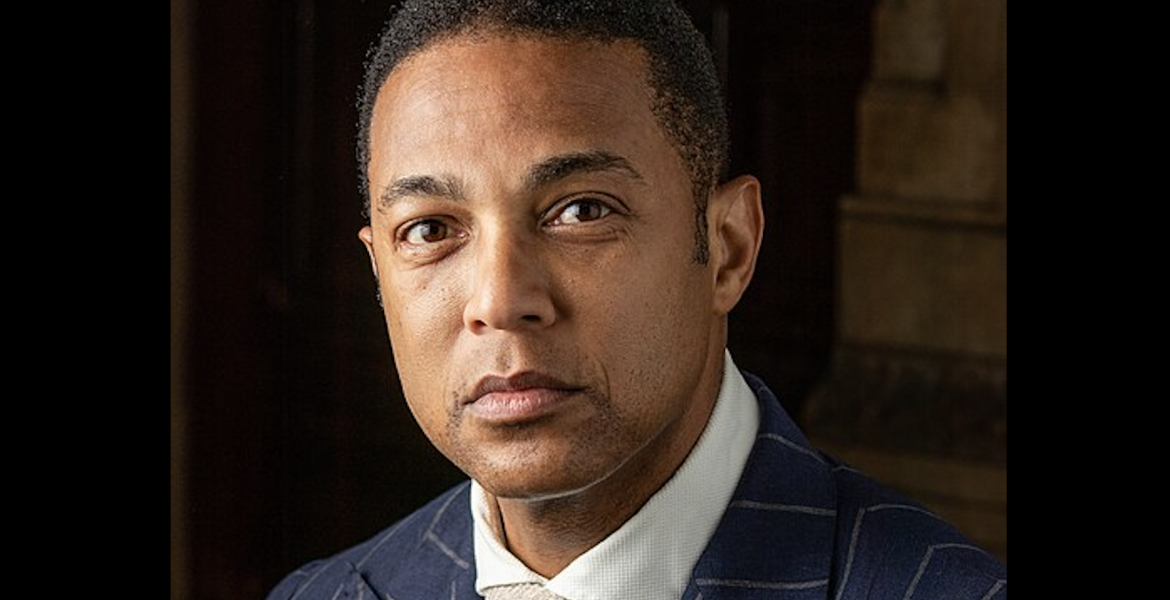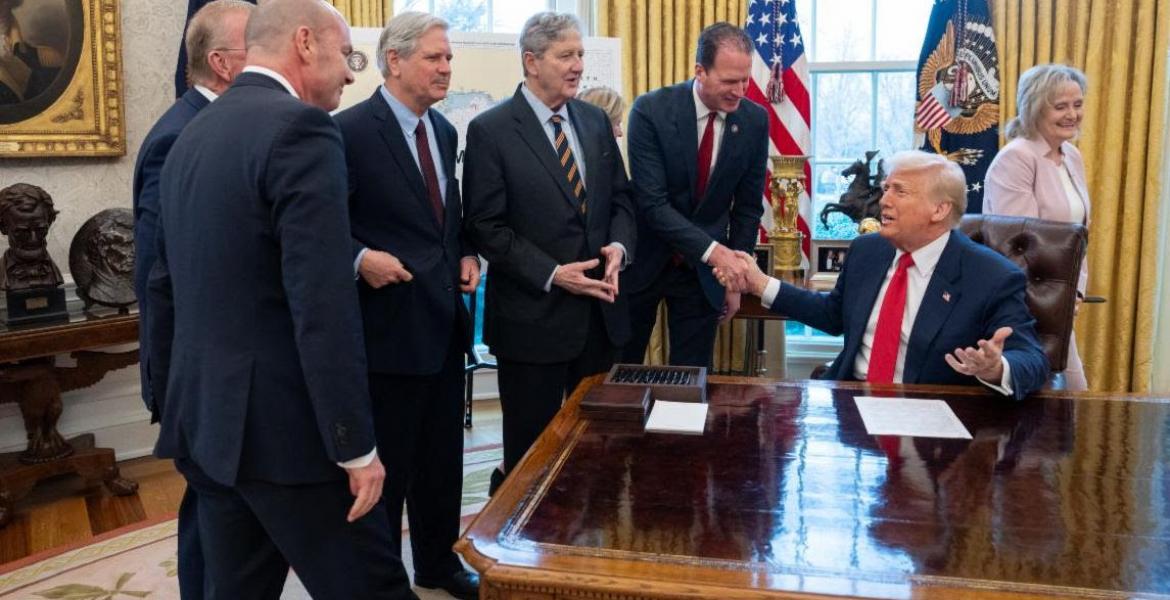OPINION — Let me introduce myself. My name is Trey Holmes. I am a native West Texan, dad, adoptive parent, former foster parent, Christian, businessman, and pastor of a local church. However, I write to you today as a fellow citizen of San Angelo, to ask you to consider all sides of the argument for the proposed ordinance to protect the most vulnerable among us: the unborn. My hope is that as you do, you will decide to vote in favor of the proposed ordinance to protect the unborn.
I want you to know I currently cannot vote in Tom Green County or San Angelo because I am still registered as a voter in Tarrant County. However, if I could, I would vote for the proposed ordinance, and I write to you now because I feel strongly about protecting the unborn. But even if you disagree, I urge you to exercise your right, make your voice heard, and vote!
The subject of abortion is a hard, complicated one. Would you like to know why? Because we have normalized the murder of unborn babies for almost 50 years. (That is three generations, y’all.) Before 1973, abortion was widely illegal in many states and culturally stigmatized. Unfortunately, as culture shifted in the 1960s, we decided to normalize the sacrificing of the unborn on the altar of our selfishness.
In the spirit of full disclosure, I used to be pro-choice, mostly due to my libertarian streak that’s wider than the stripe on a skunk’s back walking across a road in Coke County. However, my mind was forever changed with the conception of my third child, Alisa. It happened shortly after we discovered my ex-wife (we were married at the time) was pregnant and we were told the baby in her womb had “soft markers” for Down Syndrome. In plain language, that means the medical professionals were mostly sure that Alisa had Down Syndrome but were not 100% certain. As we sat in the sonogram room one afternoon while the sonogram tech and specialist showed us the soft markers on the screen, one of the doctors suggested amniocentesis to be certain whether or not Alisa had Down Syndrome. My ex-wife immediately said no, quoted the fact that there is a 1 in 400 chance amniocentesis can cause miscarriage, and said she would not risk losing our daughter. After a little back and forth, she asked the doctor, “If it were my 3 year old on the table right now instead of a baby in my womb, would we still be having a conversation about an elective procedure like this?” The room went silent, and no one raised the topic again.
As we move forward, I have a question for you: Have you read the proposal? You can find a summary of the ordinance here and a FAQ about issues the ordinance addresses here.. You will see it does not add to already existing laws, and it does not condemn or make criminals of women who seek an abortion. It does, however, hold accountable those who assist, abet, or perform abortions. This is done on purpose, because just as the fetus in a woman’s womb is vulnerable, so is a pregnant woman! Of course, no document will ever be perfect, so I am sure you will find something to disagree with in it. Still, I urge you to read the proposal before you make a decision one way or the other.
As I have conversed with others on both sides of this proposal (and really tried to listen to what they had to say) I heard lots of “what ifs.” What about ectopic pregnancies? What about the ten-year-old girl who was raped? What about the mother living in poverty? I know there are a lot more “what ifs,” but we’ll move forward with these.
What about the ectopic pregnancies? The proposal allows for abortions in the event the life of the woman is at risk. If you find a doctor who refuses help you because they are scared of a clearly written statute, find another one!
What about the ten year old girl who was raped? Did the baby choose to be conceived any more than this poor girl decided to be raped? No! Why should we add trauma upon trauma to this poor girl’s life by putting her through the physical and psychological trauma of aborting a baby? (Also, why do we always use the extremes for our arguments?)
What about the expectant mother living in poverty? Are we denying the dignity of motherhood and the ability to create life, in essence saying it is less than human to be poor? A large portion of the world’s population lives in what most Americans would consider extreme poverty. Do they face hardships? Yes, but humanity seems to thrive anyway! Should we deny supporting just laws because there are extreme situations that they make exceptions for?
What about the argument that there aren’t enough resources to take care of all these unwanted pregnancies? San Angelo is filled with free and low-cost resources for expectant mothers and families of any socioeconomic level. Any church, Health and Human Services, Shannon hospital, the Pregnancy Help Center of the Concho Valley, pick your agency, would be happy to help you or point you in the right direction. I recently toured one such facility that had a warehouse full of new, unused items that any expectant family could have for free. Perhaps the issue isn’t resources, but knowledge and advertising of these local resources.
Also, for those against the proposal and pointing fingers at pro-lifers for not being pro-life enough (don’t even get me started on this one), have you considered volunteering or donating at one of the many organizations in San Angelo that assist families and expectant mothers?
Will our foster and adoption care system be overwhelmed by the slew of new births in light of the proposed ordinance? Roe vs. Wade was overturned months ago, and I have not seen any news reports about an uptick in babies available for adoption. However, that doesn’t mean our foster care system isn’t overwhelmed. It is, but not because there are more children waiting to be adopted than families who could foster or adopt. Will you do some quick math with me? Texas has approximately 52,000 kids in foster care. There are approximately 5,700,000 married couples in Texas. On average, ten percent of married couples are unable to have children. That means there are over 500,000 Texas couples who are unable to have children. If only ten percent of those couples who cannot have kids in Texas chose to foster or adopt, there would be more than enough families for foster kids! Speaking from anecdotal and personal experience, a lot of families are reluctant to foster or adopt because the process to become and stay a foster/adoptive parent is overwhelming! Perhaps while you are railing for limited government by voting against this ordinance, you will support streamlining the foster care system to make it easier to be a foster or adoptive parent.
Speaking of governmental oversight, will this ordinance turn us into a bunch of snitches and vigilantes, waiting to turn our neighbors in for providing funds, rides, or assist a woman who wants to have one? It does have language in it that provides for culpability if these actions are discovered. But let me ask you a question: when is the last time you asked your neighbor every detail of their weekend trip as they loaded their car? Asked, “Where do you think you’re going?” as they load their kids in the car one morning. Better yet, did you call the police yesterday when you saw someone speeding on Loop 306, or accidentally running a red light on Chadbourne late at night? I would be willing to guess the answer is ‘no’ to each of these. (Thank you, by the way.) There is your answer to that issue.
Is it really the desire of a group of Christian Nationalists trying to hoist their antiquated morals upon the rest of society? Are we bridging the separation of church and state by passing this ordinance? Unless I misread the Supreme Courts briefs outlining why Roe vs. Wade was overturned, or the laws of Texas that declared abortion illegal, I am going to say no. The law, and the proposed ordinance, are based upon legal precedent and agreed upon facts. Many of the support and leadership of the Project Destiny PAC behind the proposal consists of pastors and Christians, but they are not trying to play morality police. They want to protect the most vulnerable among us. Are we really going to condemn one particular group of people who take part in our legal system to do what they believe is right, and not others who try to protect other vulnerable groups in our society? That, dear reader, is a slippery slope, and one we as a country do not want to slide down.
What about a woman’s reproductive rights? I firmly support it, as much as I do a man’s. Your body is yours to do with as you want. Do you prefer to wait until marriage to create babies? Go for it! Do you want to sleep around? There’s no law against it. But here’s the fun part about rights: they come with responsibilities. So, ladies, before you hop in bed with that cute cowboy, maybe you should have a chat about how committed he is to you. Gentlemen, you want to sleep with that hottie smiling coyly at you? Be ready to man up and take responsibility when she calls you two months later and tells you she is pregnant! Many of you know I am an ardent supporter of the second amendment because you see my show of support on my hip. I exercise my right by carrying openly and freely where it is allowed, but I am also aware that if I use my firearm, I will be held responsible for my actions. Too bad we do not view reproductive rights in the same light, because whether guns or body parts, when things go bang, the results can be life-altering!
Is a fetus a living being, worthy of protection? I believe it is, and interestingly enough, science backs it up. Historically, abortion laws began to pop up in Europe in the sixteenth century, and generally allowed for abortion up to the point that the child began to stir in the mother’s womb, usually around sixteen weeks. Does this support abortions prior to sixteen weeks? I guess it does, if you want to use sixteenth century science. But I think most of us enjoy the benefits of modern medicine, so we should look at some modern findings. A fetus has a heartbeat and brain activity at six weeks. A fetus reacts to noise at eighteen weeks, and light at twenty-four weeks. How do we decide at what point a baby is alive with personhood and rights? Which week is it? Do we really want to use arbitrary points of time to make that decision? If we do, what makes us different than previous cultures who decided certain races, tribes, and ethnicities weren’t really human, and therefore it wasn’t murder to kill them? Therefore, why should we not set the beginning of life at the moment of conception and protect all human life? I am not a pediatrician, but I know in different stages of development in the womb, children move from an embryo, to a fetus, to finally a new born baby. At each stage, a baby cannot survive without assistance from external sources. (As a parent of three kids, I might argue kids need more care to stay alive after they’re born than they do in the womb.) Why would we consider it okay to take the life of a child inside the womb, but call it murder once they’re outside the womb? What is the difference between a fetus in the womb and a baby outside the womb? Both are human. Neither asked to be created. Neither can survive without help.
We’re West Texans. We watch out for each other. We take care of each other. Let’s take care of the most vulnerable among us. Vote yes for the proposed ordinance to protect the unborn!
The author, Trey Holmes, is a native West Texan who loves San Angelo, local business owner, pastor of Community Hills Christian Church, and proud supporter of the ASU Rams!
Subscribe to the LIVE! Daily
Required






Post a comment to this article here: